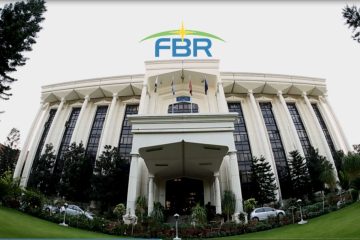The Federal Board of Revenue (FBR) of Pakistan has implemented a new regulatory duty structure impacting 657 imported items, effective July 1, 2024. This move, outlined in SRO 928(I)/2024, replaces the previous SRO 966(I)/2022 and signifies a strategic shift in Pakistan’s import duty landscape.
Targeted Duties and Exemptions
The new framework imposes regulatory duties ranging from 5% to 90% on specific imported goods. This aims to achieve a two-pronged approach: regulating imports and encouraging domestic manufacturing. However, it’s important to note that several categories are exempt from these duties.
Key Exemptions:
- Specific Notifications and Schedules: Imports falling under specific notifications and schedules of the Customs Act, 1969, are exempt. These include S.R.O. 678(I)/2004, Chapter 99 of the First Schedule, and various categories under the Fifth Schedule (subject to conditions).
- Temporary Imports: Goods imported under the Temporary Importation Scheme (S.R.O. 492(I)/2009) are exempt.
- Strategic Industries: Special steel round bars and rods for seamless pipe manufacturers, electrical steel sheets, rubber aprons and cots for specific industries, vehicles imported by new entrants under the Auto Development Policy, and input materials used by local auto parts manufacturers (S.R.O. 655(I)/2006) are all exempt.
- Targeted Products: Pine nuts (chilgoza) and roughly trimmed marble are exempt from regulatory duties.
- Duty Reduction: The regulatory duty on ground nuts in shell imported from Afghanistan has been reduced from 20% to 10%.
Impact and Implications
This new regulatory framework signifies the government’s multi-faceted strategy:
- Import Regulation: The FBR aims to exert greater control over imports, potentially curbing unnecessary imports and promoting a more balanced trade environment.
- Boosting Domestic Manufacturing: By making imported goods relatively costlier through regulatory duties, the FBR intends to incentivize domestic production of these items. This can lead to job creation and economic growth within Pakistan.
- Revenue Enhancement: The additional regulatory duties are expected to generate significant revenue for the government, which can be used for various development initiatives.
A Nuanced Approach
The exemptions provided in the new framework demonstrate a nuanced understanding of Pakistan’s economic landscape. By exempting critical imports for specific industries, the FBR aims to ensure that essential sectors continue to function smoothly without disruptions caused by higher import costs. The reduction in duty on Afghan ground nuts signifies a strategic consideration for regional trade partnerships.
Looking Forward
The new regulatory duty framework, effective until June 30, 2025 (unless revoked earlier), represents a significant shift in Pakistan’s import duty structure. This move underscores the government’s commitment to achieving a balance between promoting economic growth, supporting domestic industries, and maintaining fiscal responsibility. Businesses and consumers alike should be aware of these changes and how they might affect the import process and pricing of various goods.






